RIDING on the success of her critically claimed plays Chasing Hares and Two Billion Beats, writer Sonali Bhattacharyya said her latest work, a festive play, was to represent a “diversity of experiences and cultures”.
Bhattacharyya’s modern-day adaptation of the classical Middle Eastern folktale, Arabian Nights, is currently playing at the Bristol Old Vic theatre.
“Under Nancy Medina (artistic director), the theatre is keen for this to not be a Christmas show, but a festive show, something that welcomes everyone in the city and beyond – regardless of what your faith or cultural background is,” Bhattacharyya told Eastern Eye.
“They really feel Bristol should be telling these stories that have a real breadth of diversity which reflects all the experiences and cultures from across the city.”
She added: “It was also important for us to get away from any of the Orientalism that has often unfortunately crept in with retellings of this story. It veers towards being quite exclusive to particularly brown communities, if you do that.
“We wanted it to be the opposite of that. We wanted it to be an inclusive, contemporary take.”
Arabian Nights tells the story of Scheherazade (Yasemin Özdemir) who plots to save the women of the land ruled by a narcissistic tyrant king (Nicholas Karimi). After his queen absconds, he takes revenge on womankind by sending out marital orders to female villagers and then consigning those brides to his dungeon.
Scheherazade, known in the play as Schere, is a feisty tomboy who enters the palace with a support network of grateful women rooting for her from outside and tries to redeem the king with a different magical story each night she is with him.
Bhattacharyya admitted her “fascination” with the character of Scheherazade led her to adapt Arabian Nights, after reading many stories in her research for doing a festive play.
“Scheherazade is quite unusual in being such an ancient, iconic female character who’s also brave, resourceful and inventive. I’ve found her to be a really intriguing character,” she said.
“I was drawn into this idea of what a modern Scheherazade would be like and what that story would mean today. This idea about a woman who uses the power of storytelling to end a despotic regime as happens in Arabian Nights, but I wanted to subvert it for modern times. I wanted to try to get away from the idea of one brave person saving everyone to a story about how the whole community comes together and finds bravery and inspiration in her, and find actually that they all need to work together to unseat this despotic king.”
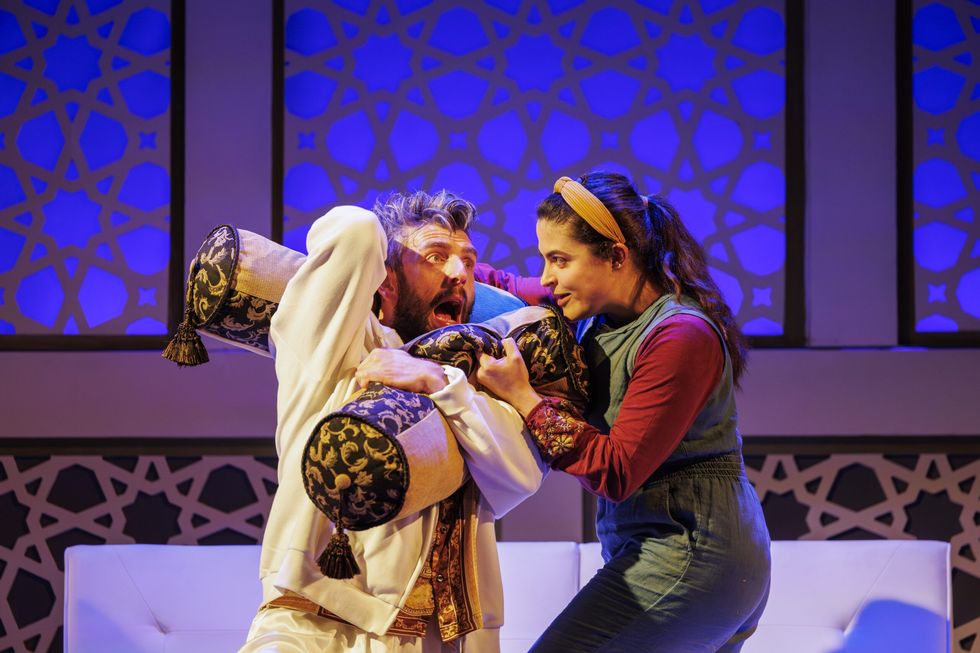
Central to the story is Schere and her sister Dina (Sara Diab).
“That was really key for Arabian Nights, to have these two dynamic contemporary heroines at the core who just happened to be brown, as well,” said Bhattacharyya. “They are interested in equality and human rights. They are very much rooted in contemporary concerns and that’s the basis for their bravery.”
Among the stories Scheherazade tells the king are those of Aladdin’s Wonderful Lamp, Ali Baba and the 40 Thieves and The Seven Voyages of Sinbad the Sailor.
For this adaptation of Arabian Nights, Bhattacharyya said she focsed on some of the more “obscure” stories as they fitted better with Schere’s mission to save her community.
“We wanted it to be a wild ride, where she tells stories to the king and every story is like a different transformative space in the theatre. That’s why I was committed early on to each story being a song,” said Bhattacharyya.
“The form of the stories and the form of the play are really distinct. It felt like an elegant way of marking the shift from the real world that Schere and the king inhabit, and the stories she tells him.”
Bhattacharyya revealed that she enjoyed taking historical stories and imagining them for a modern audience.
Her previous work, Chasing Hares, was heavily influenced by the Indian epic, the Mahabharata. “They are both rooted in oral storytelling tradition and there are countless different versions of these stories that are told across vast swathes of the world. They have different cultural influences,” she said.
“There’s something really exciting about being a contemporary storyteller and how you make these stories work for a modern audience, and still make it evocative for how we live today.”
Though the play has a modern-day feel when it comes to the narrative, costume and songs, she retained the fantasy element of Arabian Nights through the use of elaborate puppets, which include giant snakes, a winged horse and a leviathan. Manoeuvring the puppets was an additional task for the talented cast to take on, Bhattacharyya said.
“We worked with an amazing puppet maker called Sam Wild, who is based in Bristol,” she said. “The first one he brought in was the flying horse –which was amazing. It takes one person to puppet the horse’s head. The legs needed one person each. Then, we have these two beautiful wings and each of them have to be puppeted by a different person as well, and together, when the whole company is on the horse, that horse can fly because they are choreographed to make it look like it can fly.
“We have full company of eight very hard-working actors who have been asked to puppet as well as act, sing and dance in this production – it’s quite a demanding one.
When you’re puppeteering, you inhabit the character of the puppet, you’re not just manipulating it. They bring their incredible skills as performers to life because they imbue that puppet with all the personality and drama needed to make it feel like a real creature.”
Bhattacharyya said the success of her previous productions, Chasing Hares and Two Billion Beats, has given her the freedom to develop plays the way she wants to. But she said it took a lot of courage to not succumb to outside pressure to change those plays and keep the central element of “radical brown voices” which many saw as a “risk”.
“We’re in the industry, we understand that as a minority person, you inhabit that space where you both live your life, but you also can see yourself through the majority lens, because that’s the way we survive,” said Bhattacharyya.
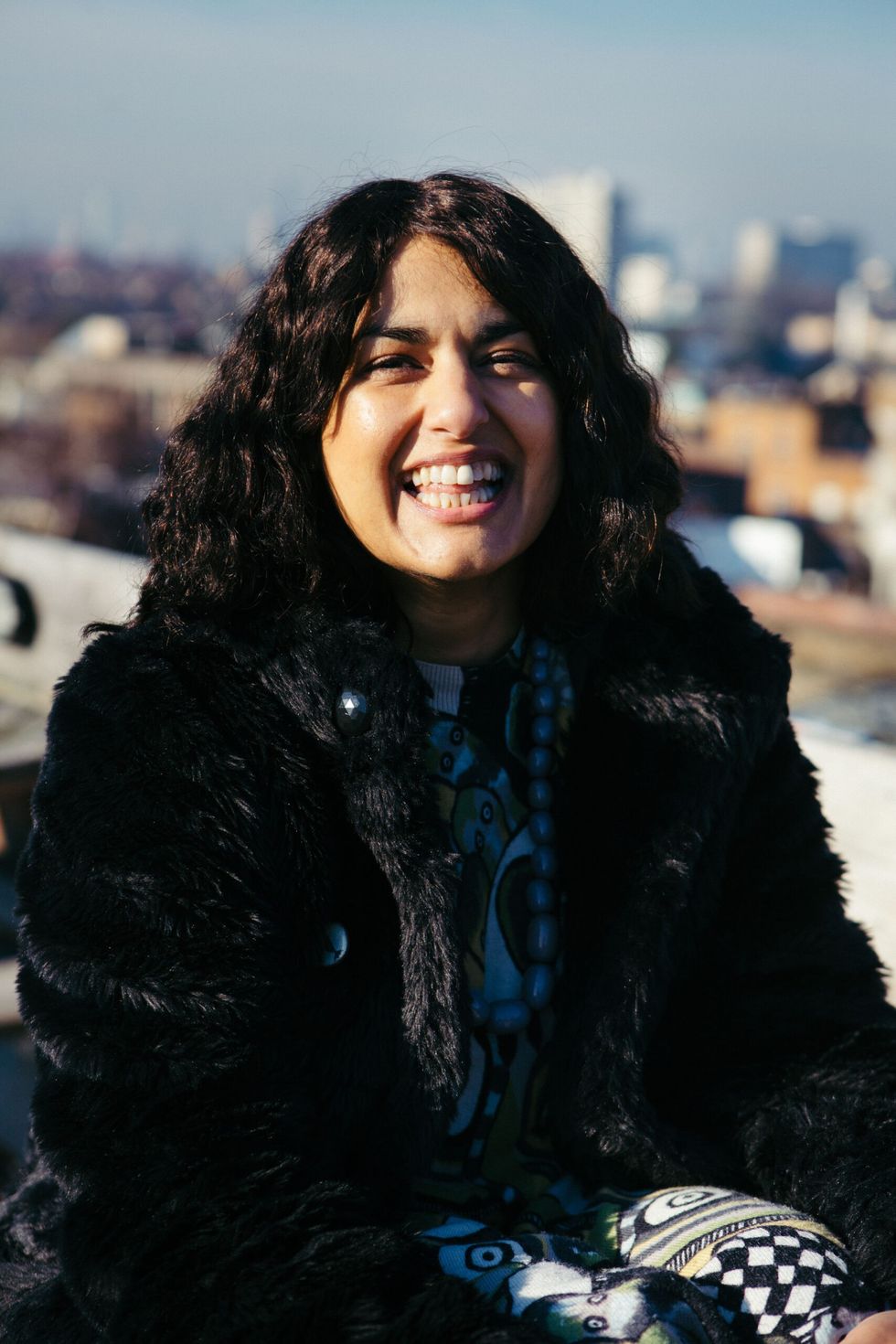
“I’m so proud of those shows – because as creative teams, we absolutely didn’t veer from our integrity and the starting point of those shows. It was about wanting to tell stories from our communities that haven’t been heard before and to tell them in a way that would connect with people, whatever their background, but to not to water it down.
“That’s the main pressure, to keep your integrity as a storyteller, trying to keep that sense of bravery that this story is important and needs to be told. But that can be a tricky one if there’s not many people of your background in the industry.”
Up next for Bhattacharyya are two plays next year, including writing next year’s festive play for the Bristol Old Vic.
She is also working Liberation Squares, a play based on three British Muslim teenage girls and social media influencers, who find themselves becoming politicised in the real world when they come into contact with the government’s Prevent programme.
She described it as a “hip-hop comedy” that will open at the Nottingha Playhouse and then tour the country.



















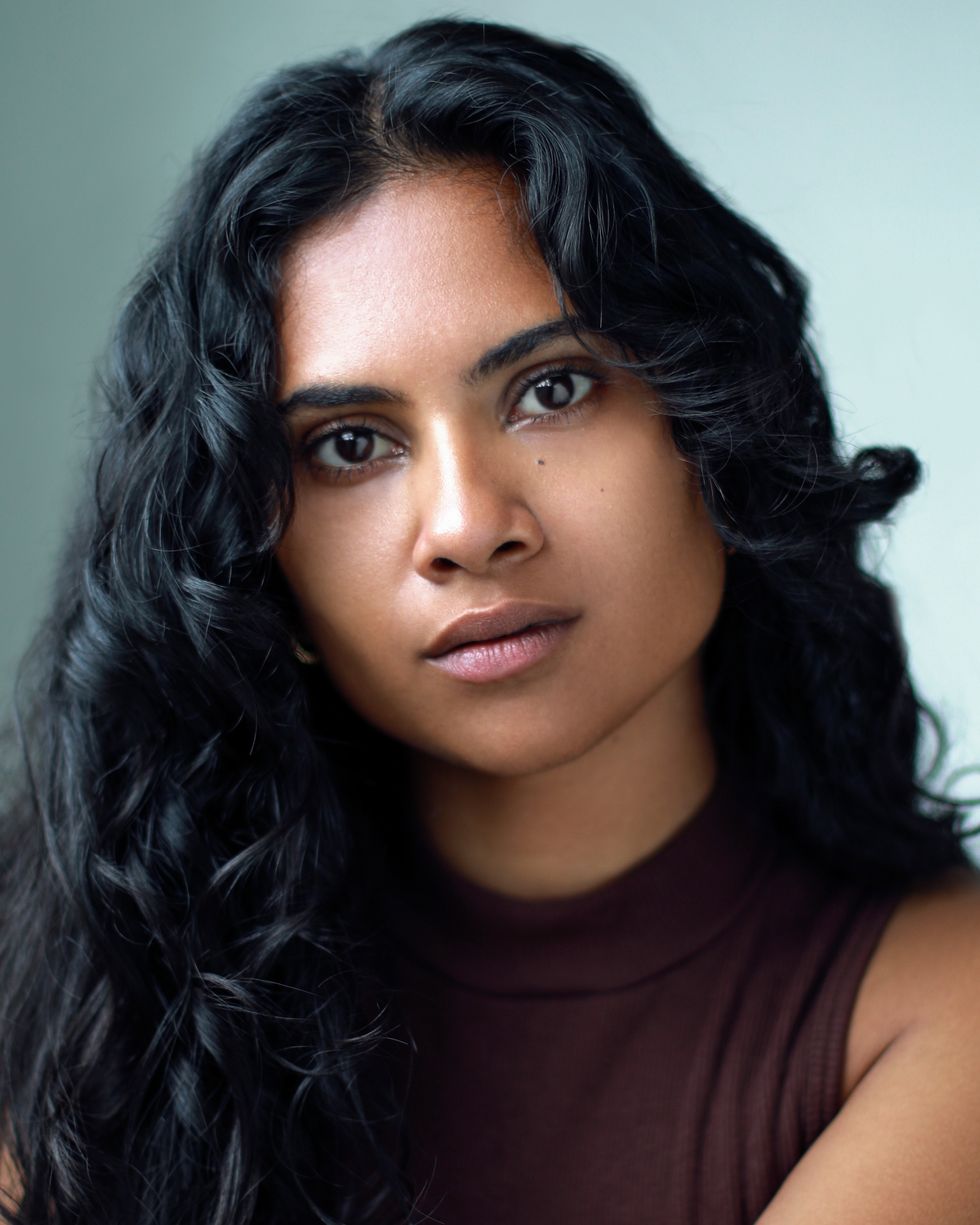 Neetika Knight
www.easterneye.biz
Neetika Knight
www.easterneye.biz

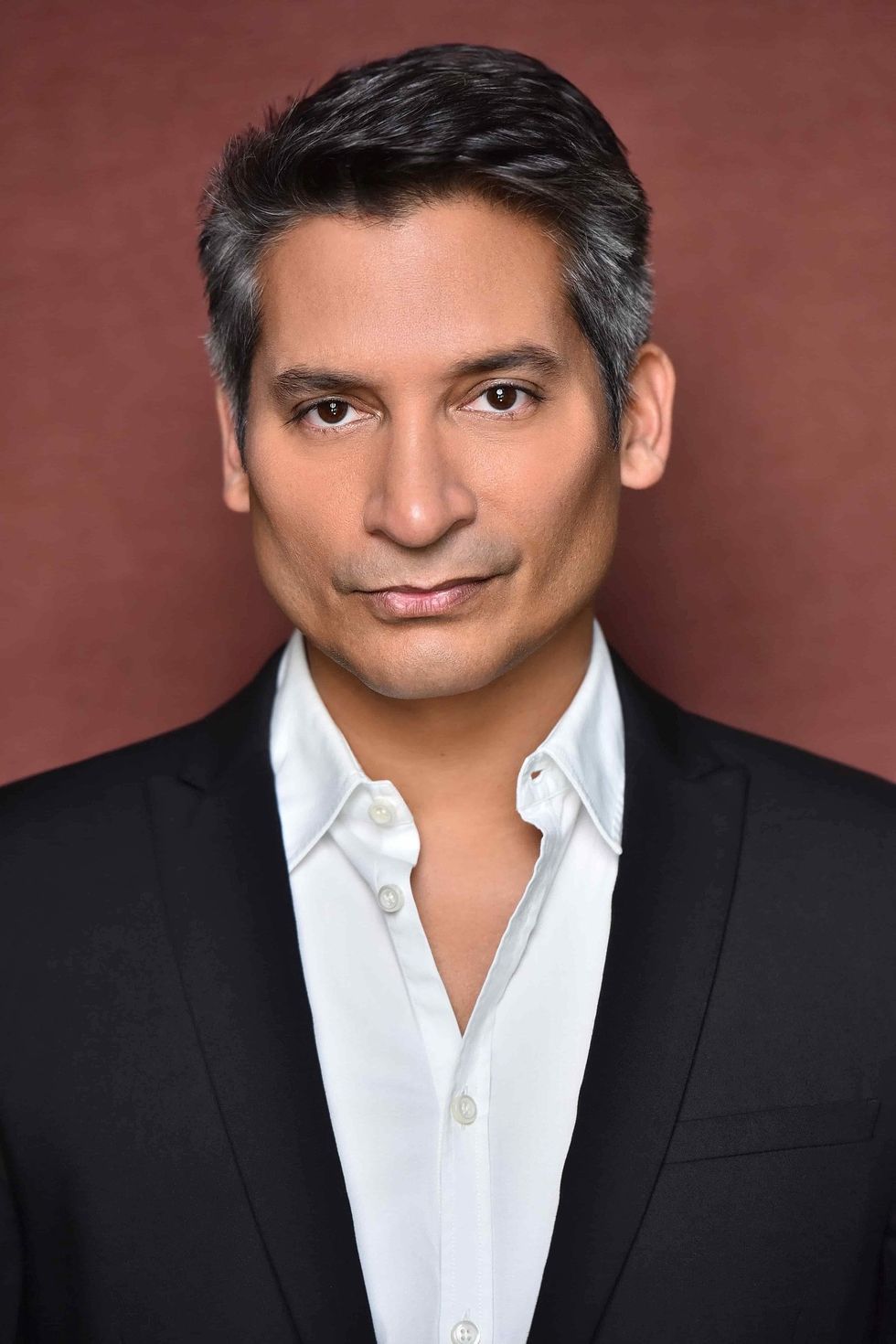 Raj Ghatak
Raj Ghatak
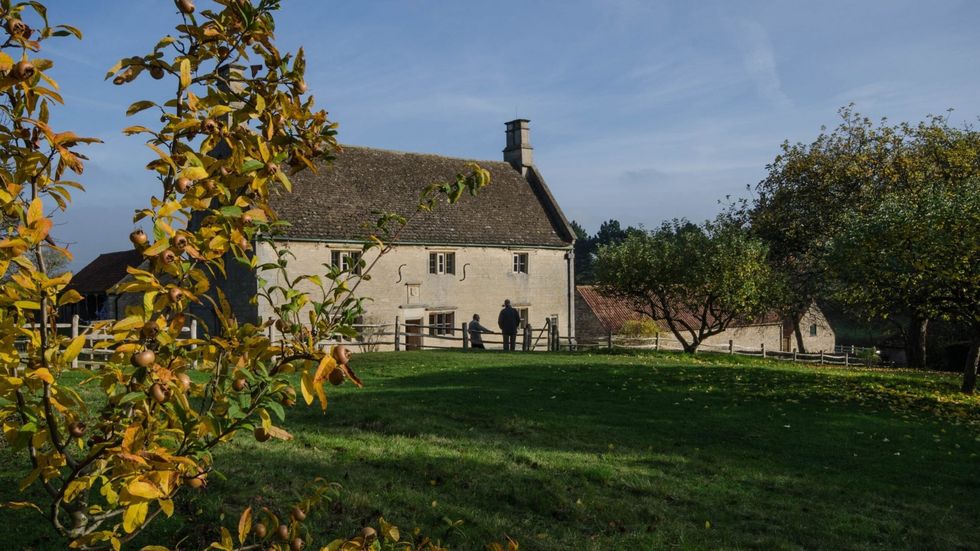 Isaac Newton’s birthplace, WoolsthorpeManor, Lincolnshire
Isaac Newton’s birthplace, WoolsthorpeManor, Lincolnshire